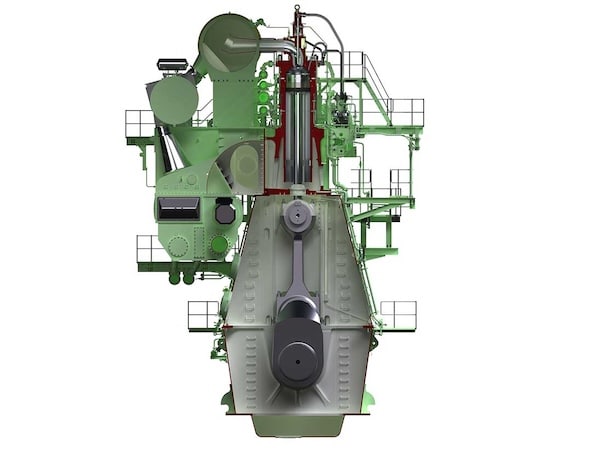Everllence Achieves Historic Methanol Engine Retrofit

Everllence has made a groundbreaking advancement in maritime technology by successfully converting the first Everllence B&W S90 two-stroke engine to dual-fuel methanol. This milestone follows the successful sea trials of the COSCO SHIPPING LINES’ container vessel, ‘COSCO SHIPPING LIBRA,’ which is equipped with the newly retrofitted engine. The project marks a significant step towards decarbonizing the shipping industry.
Innovative Collaboration and Testing
The retrofit project was a collaborative effort between Everllence PrimeServ, the company’s after-sales division, and COSCO SHIPPING HEAVY INDUSTRY. This partnership encompassed the entire process from initial concept to execution, including engineering, project management, installation, commissioning, and sea trials. To ensure the success of this pioneering retrofit, Everllence invested in a dedicated 4S90 testbed engine in Japan, which was commissioned in early 2025. This testbed played a crucial role in validating the methanol performance of the S90 engine under real-world operating conditions, paving the way for this unprecedented achievement in large-bore engine technology.
Michael Petersen, Senior Vice President and Head of Everllence PrimeServ in Denmark, expressed pride in supporting COSCO SHIPPING LINES and COSCO SHIPPING HEAVY INDUSTRY in this significant endeavor. He emphasized that this milestone not only showcases COSCO SHIPPING LINES’ leadership in the industry but also highlights Everllence’s capability to execute large-scale retrofit projects. With 26 dual-fuel conversions already completed and a robust pipeline for various alternative fuels, shipowners can rely on Everllence for effective retrofit solutions.
Höegh Autoliners orders first-ever ammonia engines for car carriers
Future Prospects for Decarbonization
Beyond the successful retrofit of the COSCO SHIPPING LIBRA, Everllence sees vast potential for additional large-bore retrofits. Currently, over 300 vessels worldwide are equipped with S90-class engines, making them prime candidates for similar conversions to dual-fuel methanol systems. Petersen noted that while achieving full decarbonization in the maritime sector will require industry-wide collaboration, this achievement demonstrates that large-scale conversions are both technically feasible and commercially viable.
This development opens a practical pathway for accelerating the maritime energy transition, allowing shipowners to reduce emissions effectively. Everllence’s commitment to innovation in retrofitting solutions positions them as a key player in the ongoing efforts to create a more sustainable shipping industry.
